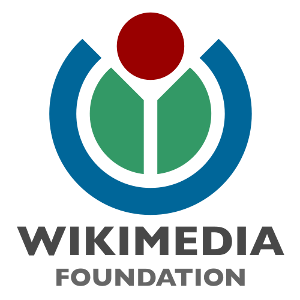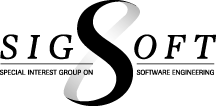OpenSym 2014 opened registration! Please go here to register. Also, more information is available about the conference location as well as travel and accommodation. The program will be announced over the next few weeks but look forward to four fantastic keynotes/invited talks and a wonderful open collaboration research as well as community program!
Category: OpenSym 2014
-
Notification Deadline Heads-up
Acceptance notifications will be sent out between June 7-15; please stay tuned!
-
Wikimedia UK Sponsors OpenSym 2014 Participation
As a part of Wikimedia UK’s continued efforts to support the Wikimedia community in the UK, Wikimedia UK regularly offer scholarships to enable attendance at international conferences and meetings. Past scholarships have enabled members to attend previous years’ events such as Wikimania or WikiSym. We are happy to announce that Wikimedia UK is offering two scholarships for OpenSym 2014 again, just like they have done in previous years. To learn more, please turn to their website.
Update 2014-05-15: At present the Wikimedia UK link is locked; we hope it will open up again soon.
-
Research Paper Submission Doors Closed, DocSym and Community Track Submissions Still Open
OpenSym 2014 closed its research paper submission doors on May 4th with a record number of submissions. We are very happy about this and are looking forward to a strong technical program in Berlin on August 27-29, 2014.
The Doctoral Symposium is still accepting submissions, and we also have left some room for a second round of Community Track paper submissions. Please see the respective pages for submission information.
-
Upcoming Paper Submission Deadline May 4th!
Research paper submissions to OpenSym 2014 as well as the first round of community paper submissions are due
May 4th, 2014 (changed from
April 20thto evade Easter celebrations/vacation).Please get your papers ready and
Guidelines by way of the general OpenSym 2014 Call for Submissions (Papers).
Sponsors







-
Call for Submissions (Papers): Open Data Research Track at OpenSym 2014
Research paper submission deadline: May 4th, 2014 (changed from
April 20thto evade Easter celebrations/vacation).Link to full call for submissions: Open Data Research Track.
Call for Submissions to Open Data Research Track
Open Data has the potential to transform society, government and the economy, from how we travel to work to how we decide to vote. Many initiatives started to open data sets from the government, public organizations and from industry. Still however, research on Open Data falls short in the public.
This track contributes to the increasing awareness on Open Data in research. It asks Open Data researchers and practitioners from research, industry, civil society, and government to join the Open Data track at OpenSym and to share your approaches, methods and results with others.
We invite you to submit on, but not excluding:
-
Call for Submissions (Papers): IT-Driven Open Innovation at OpenSym 2014
Research paper submission deadline: May 4th, 2014 (changed from
April 20thto evade Easter celebrations/vacation).Link to full call for submissions: IT-Driven Open Innovation Research Track.
Call for Submissions to IT-driven Open Innovation Research Track
Open innovation expands the scope of research and development activities beyond the boundaries of single company structures and turns the participants into proactive and self-organized contributors. While most open innovation activities do not require extensive management control and guidance, they strongly rely on a functional infrastructure and powerful tools for data exchange, communication and cooperation in order to proceed efficiently and to generate valuable results. Information technology therefore plays a decisive role for open innovation.
There can hardly be doubt that recent developments in information technology such as social media have hugely contributed to the enormous popularity of open innovation. Nevertheless, scientific insight into this dynamic is still rather limited. This opens up a wide field of research in computer science, information systems and adjacent disciplines, including topics such as:
-
Call for Submissions (Papers): Wikis and Open Collaboration Research Track at OpenSym 2014
Research paper submission deadline: May 4th, 2014 (changed from
April 20thto evade Easter celebrations/vacation).Link to full call for submissions: Wikis and Open Collaboration Research Track.
Call for Submissions to the Wikis and Open Collaboration Research Track (WikiSym)
While Wikipedia has shown that Internet-enabled open collaboration can be amazingly successful, the potential of open collaboration extends well beyond this single instance. This track is dedicated to the science and application of wikis and open collaboration technology outside of the context of Wikipedia.
Researchers and practitioners from all disciplines interested in open collaboration technologies are encouraged to submit to this track. We anticipate that papers accepted to this track will examine these technologies using a variety of lenses informed by diverse disciplinary perspectives.
We expect that some of the topics covered in this track will include (but by all means will not be limited to):
-
Call for Submissions (Papers): Open Educational Resources (OER) Research Track at OpenSym 2014
Research paper submission deadline: May 4th, 2014 (changed from
April 20thto evade Easter celebrations/vacation).Link to full call for submissions: Open Educational Resources Research Track.
OER (Open Educational Resources) Research Track
Open Educational Resources (OER) are learning materials that are freely available to use, reuse, adapt, and share. Collaborative spaces such as wikis and blogs allow teachers to connect, share and customize materials. Open online learning environments such as MOOCs make educational material for learners available in and out of school. With OER, we can harness the power of open access to high-level education addressing learners worldwide.
The availability of large sets of user data and new analysis methods allows us to take into account individual differences of teachers and learners. By addressing learners’ different needs and various levels of prior knowledge more timely and adaptively, we may overcome the “one size fits all” solution towards a more flexible approach to teaching and learning. Connecting our students with rich and dynamic educational materials, thereby supporting self-paced learning and co-construction of knowledge, we may provoke critical thinking and ultimately enhance their learning.
-
Call for Submissions (Papers): Free/Libre/Open Source Software Research Track at OpenSym 2014
Research paper submission deadline: May 4th, 2014 (changed from
April 20thto evade Easter celebrations/vacation).Link to full call for submissions: Free/Libre/Open Source Research Track.
Call for Submissions: Free/Libre/Open Source Research Track
Although free, libre, and open source software (FLOSS) can be studied with the general methodologies and techniques developed for other kinds of software, it shows enough peculiarities (such as the extent to which it can be reused, the fact of being usually build by cooperating communities, or the exploration of new business models) to need new developments that help to understand it. In addition, in many cases it also offers new possibilities and opportunities to researchers, such as the availability of detailed data about the development process, the openness of the decision taking procedures, or the open and collaborative nature of communities around FLOSS projects, which allow for the development of new techniques and methodologies.
The track on FLOSS research is one of the peer-reviewed research tracks of OpenSym. It aims at hosting current research papers on issues related to the different aspects of this kind of software, from different points of view. Multidisciplinary research is specially welcome, but specific lines within a given research field also have their place. In any case, the works presented should show specific aspects of FLOSS, and should not be limited to showing research issues on products that happen to be FLOSS, but have no differential aspect because of that.
